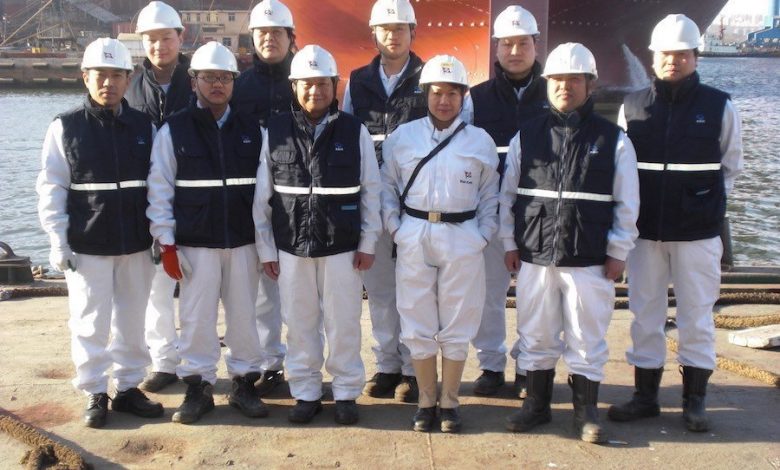IMO should take over ILO’s seafarer role: Clay Maitland

The International Maritime Organization should have a seafarers standing committee that meets at least twice a year, argued Clay Maitland, the head of International Registries, Inc, which runs the Marshall Islands flag, the world’s third largest registry.
Maitland was speaking as a keynote at debate on maritime welfare held in conjunction with London International Shipping Week.
Currently seafarers’ rights are negotiated at the International Labor Organization in Geneva, but Maitland urged for IMO to take this role back to its London headquarters. It was ILO who brought the Maritime Labour Convention (MLC) into force, something that Maitland said was already out of date and in need of amendments.
Maitland, a regular columnist for Splash, said that connectivity at sea needed to be addressed, and that action on seafarer rights was unlikely to progress unless a greater light was shone on the abuses meted out to many of the world’s crews.
“When it comes to seafarers’ rights we are in a very darkened room,” Maitland said. “There is no database that we as a flag state can go to and advocate for the seafarer at IMO, ILO or even the UN general assembly… If that information was out there the political pressure and political will would be out there to support the seafarer.”
He called for a better diet for those at sea and for flag states to have better access to statistics on the rate of illnesses, suicides and deaths onboard.
“There is data out there but we cannot get it. If that information was out there MLC would have more seafarers rights in it,” Maitland said, while calling a “much healthier degree of centralisation” of information and data.
Maitland said governments, particularly the UK government, need to take the lead in how seafarers rights are protected. “That leadership cannot come from a flag state,” said the IRI boss.
A panel made up of NGOs and charities then debated some of the issues raised by Maitland.
Per Gullestrup, chairman of the seafarer welfare network, ISWAN and a partner at Clipper Group, said the issue of connectivity at sea was stymied by the high costs from the current service providers. Were there to be more service providers like there is onshore then prices would fall, he said. Gullestrup also warned increased internet access might increase isolation among seafarers.
“Internet connectivity will only happen if it becomes a proscriptive requirement,” suggested IRI’s Maitland.
David Hammond, the ceo of Human Rights At Sea, called for fellow NGOs and charities to work together more, and even split funding. “We are failing to act collegiately… Charities are spending too much time chasing funding,” Hammond said.
